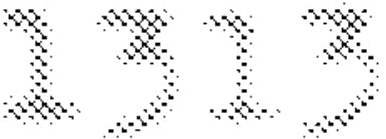For many when confronted with the terms dBFS, dBu, +4/-10, VU, etc their eyes gloss over. Without understanding a few simple concepts, integrating your DAW with external hardware can be a game of trial & frustration.
To properly drive & take full advantage of hardware in the analog realm, you need to 1st understand what signal level the device is designed to receive. This is when dBu comes into play.
- dBu – (dB in reference to 1 mW at 600 ohms, equal to 0.775 V) All you really need to know is this is a measurement standard for audio signals.
Most professional audio gear is made/calibrated to function in a +4 dBu = 0VU environment. This means when a +4 dBu signal hits the hardware input, it will read 0 VU on the hardware’s VU meter.
- VU – Unit of measurement originally developed in 1939 by the combined effort of Bell Labs and broadcasters CBS and NBC for measuring and standardizing the levels of telephone lines.
The question that often comes up is “How do my DAW levels relate to my hardware?”
